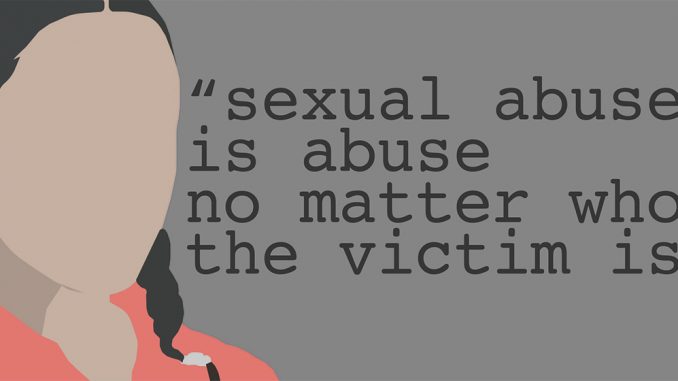

There are few times I can’t find the words to express myself. But as I sat on the floor with my friends, writing a letter to Cyntoia Brown, I felt nothing I could write would bring her any peace of mind.
What do you write in a letter to a woman who was forced into sex trafficking when she was 16 years old and sentenced to life in prison for killing her then 43-year-old abuser out of self-defense?
Earlier this month, Brown, who is now 30 years old, was finally granted clemency. She will be released on Aug. 7 to supervised parole — exactly 15 years after her arrest.
But her release doesn’t make up for the adolescence that was stolen from her. As an intersectional feminist, I can’t help but point to the role her race and gender played in her life sentence.
Our society refuses to acknowledge women of color who survive horrible abuse. We should be advocating for silenced survivors and questioning the justice system because things aren’t always as just as they seem.
“Women have been overlooked by the system,” said Tara Tripp, a Temple University criminal justice professor. “Women have always committed crimes, but because there were so few and the system is male-dominated, [Brown’s case] never made the news.”
The mainstream media largely ignored Brown’s case when it emerged in 2006, even though the case against her was unfair from the start. Brown showed signs of marijuana and cocaine intoxication during an interview with police and didn’t have an adult present when she was read her Miranda rights, Tripp said.
There was no initial public outcry about the way she was treated, that she was a child or that the man she killed was a 43-year-old pedophile.
Our individual values, experiences and identities play a role in how we interpret stories, especially heavy ones like Brown’s. And our justice system is no exception to these biases.
“Race plays a vast role in our interpersonal feelings with one another,” Tripp said. “[People who] think that our criminal justice system is not affected by that are living in a world with rose-colored glasses.”
We don’t relate young Black women to innocence, and we instead treat them like adults and assume they’re guilty.
By sharing Brown’s story, I don’t seek to persuade anyone that what she did was acceptable or legal or that it should be excused without respect for the law. I’m simply asking you to challenge your perceptions boldly and often.
Brown, whose mother consumed up to a fifth of whiskey per day while pregnant with her, was born with fetal alcohol syndrome to a parent with several mental illnesses. She was put up for adoption. But she ran away from the home of her adoptive parents and was forced into sex trafficking by a man known as “Cut Throat.”
None of this seemed to bring Brown any sympathy when she was sentenced in 2006.
“The ideas of mental health, trauma and forced victimizations are not equally distributed,” said Shaeeda Mensah, a philosophy professor. “Some people lack access to the ability to make a claim about them.”
Our country is so complicit when taking chances away from children who were never given chances to begin with.
“In the United States, we have preconceived notions about who a victim is, and who a perpetrator is,” Mensah said. “I think it is often difficult to see women of color as victims.”
And it makes it even harder for people to sympathize with Brown because of her position as a sex worker.
When the average person hears the word “prostitute,” plenty of images run through their minds. Many of us have a negative perception of sex work based on what we see on television and in movies. People of all genders thrive off of access to sex work, yet a culture of misogyny and rampant sexual abuse hinders us from humanizing these workers.
If you type Brown’s name into Google, the words “teen prostitute” come up quite often. But by law, any person under 18 years old is actually a victim of trafficking.
Brown killed a man, and that is inarguably a crime. But in practical applications of law, hardly anything is black and white.
“All people deserve a right to be considered innocent until proven guilty, [and] sexual abuse is abuse regardless of who the victim is,” Mensah said. “We will never be able to give Cyntoia back the time that she has lost. So this is a victory, but we also need to make sure that we can prevent this and not just rectify it once it occurs.”


Be the first to comment